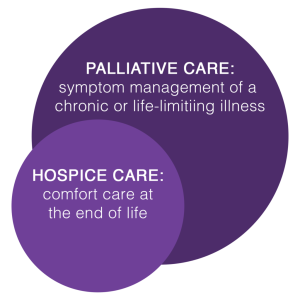Hospice and Palliative Care
Not all Palliative care is Hospice, but all Hospice is Palliative care. Educate yourself about end of life and avoid unnecessary trauma at an already difficult time.
There needs to be far better education around Old Age and the complex dynamics that go hand in hand with the care and understanding of end of life. The global population isn’t growing, it’s diminishing and within the next decade or so there will be a very large old age population that will need full time professional care. The population isn’t getting healthier either as much as medical professionals and scientists insist that we are advancing. The fact that we have lost touch with nature, natural medicine, simplicity, and down to earth common sense is part of the problem, because it’s in these very things that our answers lie.
We labour in death and out of life in much the same way as we labour in birth and into life and yet we place positive focus on birth and the beginning of life but don’t give the end of life it’s dues. Most of us know that old age is inevitable although it does not come to all of us in the same way, but death is a certainty that cannot be avoided. However, how many of us really accept this fact?
We come into the world alone and naked and we leave this world in the same way. We tend to view birth as a happy occasion and cause for celebration but death as the complete opposite. Of course, you, your culture, and faith and family traditions also determine how you view old age and death, but none of this takes away from the fact that most people don’t talk about getting old, other than “do I have enough money to retire on, what am I going to do when I am old and actually I don’t really want to think about it all so I will wait and see”.
I have written a course that addresses all this by answering these questions:
- Have you given any thought to your own old age and how you want to be cared for? You will need care, either 12 years, 1 year, 3 months, 1 week or 5 days before you die, unless your death is sudden.
- Have you looked after your health, and do you know yourself well enough to take responsibility for any diseases that may require hospice and palliative care?
- Have you thought through the legalities involved? Do you have a will, a DNR (do not resuscitate) your funeral plans, a POA (power or attorney) for health and finances or a living will? Do you know what laws apply in your country?
- Have you considered the possibility that you may lose your memory, get dementia and not have mental capacity which would affect absolutely everything after the fact?
- Have you paid attention to your family, extended family and friend dynamics and how these may affect your end of life? By the time you get there you must be prepared for the unexpected. People’s true natures come out in highly charged emotional situations.
- Do you understand end of life, active dying and death? Educate yourself so that you know what to expect and they are fewer surprises.
- Think ahead to how different people will handle end of life, death and grief. Everyone is different – pay attention so that difficult situations at such a vulnerable time can be avoided.
“When my client has learned to answer their own questions, my job is done”.
Need to know more? WhatsApp on +27823740940 or email on barbara@barbarascogings.com to book a complimentary 20-minute session to discuss this in more detail.

